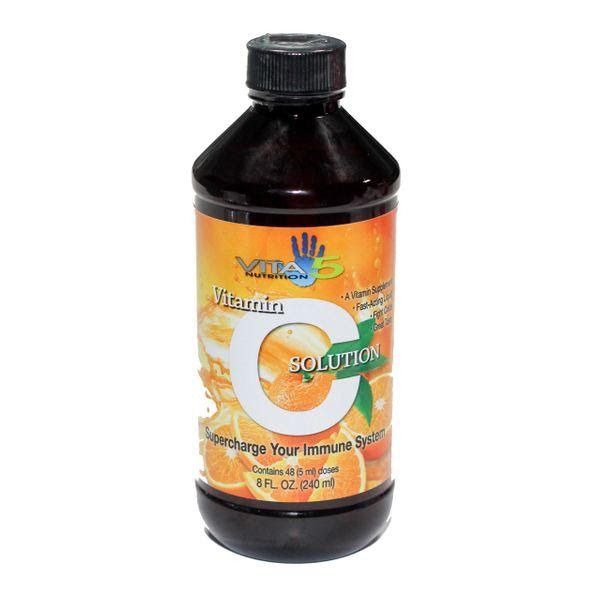Vitamin C Solution - 8oz
Vitamin C, also known as ascorbic acid, is necessary for the growth, development and repair of all body tissues. It's involved in many body functions, including formation of collagen, absorption of iron, the immune system, wound healing, and the maintenance of cartilage, bones, and teet
What can vitamin C do for your health?
Vitamin C is one of the safest and most effective nutrients, experts say. It may not be the cure for the common cold (though it's thought to help prevent more serious complications). But the benefits of vitamin C may include protection against immune system deficiencies, cardiovascular disease, prenatal health problems, eye disease, and even skin wrinkling.
ARE LIQUID VITAMINS BETTER THAN PILLS?
Deciding whether to deliver a vitamin to the body in pill form or liquid form often depends on biochemistry and physics.
All pill forms of vitamins, including cellulose capsules, take a solid shape that has a chemical structure. So they come with dimensions—size, shape, and rigidity—in addition to the physical properties of how they breakdown in the body. Liquid forms of vitamins don’t have these barriers.
Generally, they’ll be absorbed in the stomach at a different rate than its liquid counterpart. Pill forms can be less than ideal in a variety of circumstances that have to do with the ability to swallow effectively. But those aren’t the only reasons one form might be the preferred delivery system over the other.
ABSORPTION
The efficacy of the vitamin doesn’t typically depend upon what form it's absorbed in when it reaches the stomach, but the absorption rate is greatly affected by its form. The rate at which a vitamin is absorbed comes down to the physical chemistry of the compound. By and large, a liquid in the stomach will absorb at a much faster rate than solid pill form will. In fact, the body can begin absorbing liquid vitamins before it even reaches the stomach.
That rate—and the reasons for wanting a slower or faster absorption of the vitamin—is a significant factor in whether or not your functional medicine practitioner will recommend a liquid or a pill. If a quicker rate is needed, a liquid form will be preferred, and the surface area and the mechanics of breakdown that accompany the liquid form will actually start to fraction out the nutrients as soon as it’s ingested. With a liquid, the gastrointestinal tract doesn’t have to work as hard to break down and start to process the vitamin.
WHEN LIQUID FORM IS BETTER
In addition to a preference for a faster absorption rate and a higher dosage, liquid vitamins are generally the preferred form when
-
The patient is a child.
-
You need to deliver a higher dosage in a smaller quantity.
-
The patient has difficulty swallowing.
The vitamin absorption fares better with exposure to acids in the stomach because it comes into contact with the stomach acid more freely, such as with iron, calcium, and protein.
